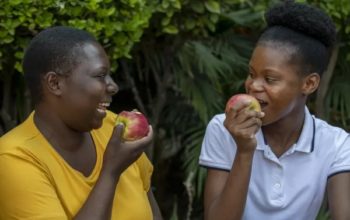By Zodidi Mhlana
news@alexreporter.co.za
At the age of one, she was diagnosed with SMA (spinal muscular atrophy) and doctors predicted she would only live for five years.
Kerry Walsh, 24, was correctly diagnosed so young when her parents realised she was not reaching milestones her fraternal twin was hitting.
“I never crawled and walked as a baby,” she said.
The fact that Walsh was diagnosed with spinal muscular atrophy on time was fortunate, as research has shown it can take up to four years for people to receive a definitive accurate diagnosis for rare diseases.
A rare and fatal neurodegenerative disorder, multiple system atrophy (MSA) is characterised by a variable combination of parkinsonism, cerebellar dysfunction, and autonomic dysfunction.
There are a number of diseases that affect a comparatively small percentage of the population that are considered rare.
About 30 percent of the people affected by orphan diseases are children in some parts of the world due to their rarity.
Walsh has lived a normal life up to now, as she suffers from multiple system atrophy level two, which has forced her to rely on a wheelchair since childhood.
Her parents prioritised healing from an early age and didn’t focus on expensive medications, which was not widely available during her diagnosis.
“We made the best of what we had. A lot of treatments are currently available,” the Fourways resident said.
She’s not on medication for her condition, even though her immune system is low.
“I don’t take any medication.”
The high costs of treatment and medicines remain inaccessible to many patients with rare diseases in South Africa.
When asked why the doctors gave her five years to live, she attributed this to a lack of research and knowledge on the condition.
Published studies have shown that rare diseases are not widely studied across the country.
While doctors told her parents to wait for her death, Walsh graduated from high school, earned honors at university and found a job during the COVID-19 pandemic.
She visits schools in Johannesburg to educate about rare diseases and encourages children to live their lives to the fullest.
In addition, she uses social media like Twitter to discuss SMA, disabilities, and the issues that people with disabilities face.
There are approximately four million people with rare diseases in South Africa, including Walsh.
Walsh is one of about four million South Africans suffering from rare diseases, and they all face the same challenges, regardless of whether they are enrolled in the public or private healthcare system.
Missy Hayes, of Rare Diseases South Africa, cited the lack of awareness about rare diseases among healthcare providers, delays in diagnosis, limited access to treatment, and affordability of treatment as some serious issues rare diseases patients grapple with.
“There are several pressing issues in South Africa regarding rare diseases. One of the most pressing is medical schemes.
“Also, accessing appropriate medication timeously – numerous delays exist with drug registration within the country.
“The referral process within the healthcare system and the current barriers in terms of accessing appropriate services,” she said.
South Africa offers genetic testing, but it is limited and often needs to be done overseas, which takes time and costs a lot of money.
“Generally, patients die due to complications of their rare disease. What we can confirm is that for some of our patients, if they do not have access to their treatment, they cannot live a fulfilled life,” Hayes said.
Hayes said the purpose of Rare Diseases South Africa was to improve the quality of life of patients affected by rare diseases.
“Patients must also contend with the stigma of their rare disease and a complete lack of knowledge from the public of what they are dealing with daily.
“We provide many services to patients to assist in their journey from diagnosis to treatment as well as emotional support,” she noted.



